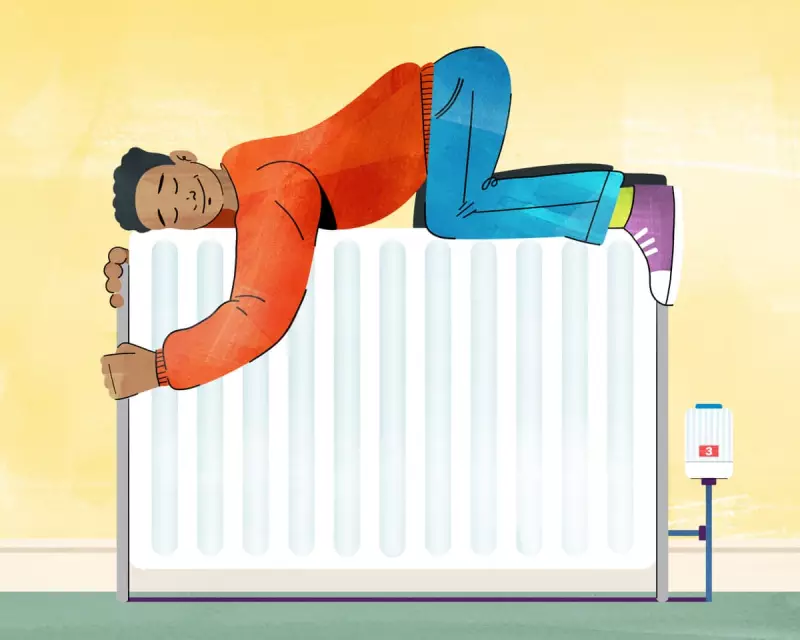
Master Your Heating, Boost Your Savings
As energy costs continue to squeeze household budgets across Britain, simple adjustments to your heating system can deliver significant financial relief while maintaining comfort. According to Sarah Pennells, consumer finance specialist at Royal London, small changes can make a big difference when it comes to staying warm while conserving energy.
Embrace Smart Heating Technology
Taking control of your heating begins with utilising timer functions if your boiler or thermostat has one. For enhanced management, consider upgrading to a smart thermostat that connects your heating system to the internet. This innovation allows remote control through mobile applications, enabling you to adjust heating settings if plans change unexpectedly.
Smart thermostats typically cost between £60 and £250 depending on model and features, which can include multi-room control, hot water management, and geofencing technology that tracks your movements to optimise heating. Some models like the Bosch Room Thermostat II (£69.99 on Amazon) can be self-installed, while others such as the Hive Thermostat V4 (£155 on B&Q) require professional fitting, often arranged through retailers at additional cost.
Energy suppliers sometimes offer discounts on partner products - Octopus Energy provides up to 50% off tado° smart thermostats, reducing a Wireless Smart Thermostat X Starter Kit from £159.99 to £112.
Optimise Temperature Settings
Simply adjusting your main thermostat can yield impressive savings. The Energy Saving Trust calculates that reducing your temperature from 22C to 21C saves typical British households approximately £90 annually. For most people, comfortable indoor temperatures range between 18C and 21C.
Citizens Advice indicates that each degree reduction saves about 10% on energy bills, though they caution elderly individuals or those with health conditions against setting thermostats below 21C. The organisation also notes that maintaining constant low heating costs more than operating it at slightly higher temperatures for shorter periods.
Programming your heating to switch off 30 minutes before leaving home or sleeping provides additional savings without compromising comfort.
Fine-Tune Your Boiler and Radiators
For homes with combi boilers, lowering the flow temperature - the heat of water circulating to radiators - from the typical default setting of 75-80C to around 60C can reduce gas bills noticeably without affecting warmth. This approach works particularly well in properties with adequately sized radiators and good insulation.
Households with thermostatic radiator valves (TRVs) can customise temperatures room by room using the dials usually numbered 0-6. The Energy Saving Trust recommends setting frequently used rooms to 3 or 4, with less-used spaces at 2 or 3, potentially saving £35 yearly when combined with programmer and thermostat systems.
Sophie Burr of National Energy Action warns against completely turning off heating in unused rooms: "Turning radiators down to number 2 in rooms you are not using allows some heat to prevent mould growth, which can worsen respiratory conditions."
Implement Additional Efficiency Measures
Installing radiator reflectors behind units on external walls can significantly reduce heat loss, as approximately 35% of room warmth escapes through walls. These inexpensive foil panels, available at retailers like Screwfix (£7.51 for 1.88 sq metres) and B&Q (£14.97 for 5 sq metres), reflect heat back into rooms and are particularly beneficial for uninsulated walls.
Regular radiator maintenance also improves efficiency. Bleeding radiators every few months releases trapped air using a special key (£3.50 for a two-pack from B&Q) or flat-head screwdriver. Ensure radiators are cool before turning the bleed valve anti-clockwise until water appears consistently.
Avoid positioning furniture or curtains directly in front of radiators, especially under windows, to allow proper heat circulation throughout rooms.
Prioritise Boiler Maintenance
Annual boiler servicing not only improves efficiency but extends appliance lifespan by addressing minor issues early. Octopus Energy notes that unserviced boilers can consume up to 10% more energy than regularly maintained units.
Standard boiler services cost between £70-£110 according to Which?, though some energy companies include servicing in cover plans starting around £19 monthly. The consumer organisation advises comparing whether monthly payments outweigh the cost of annual servicing and repairs.
For rental properties, landlords bear legal responsibility for annual boiler servicing conducted by Gas Safe engineers for gas boilers or Oftec-certified engineers for oil systems. This ensures appliances operate efficiently and don't leak dangerous carbon monoxide.
By implementing these practical strategies, British households can achieve the dual objectives of staying comfortably warm during colder months while making meaningful reductions to escalating energy expenses.





